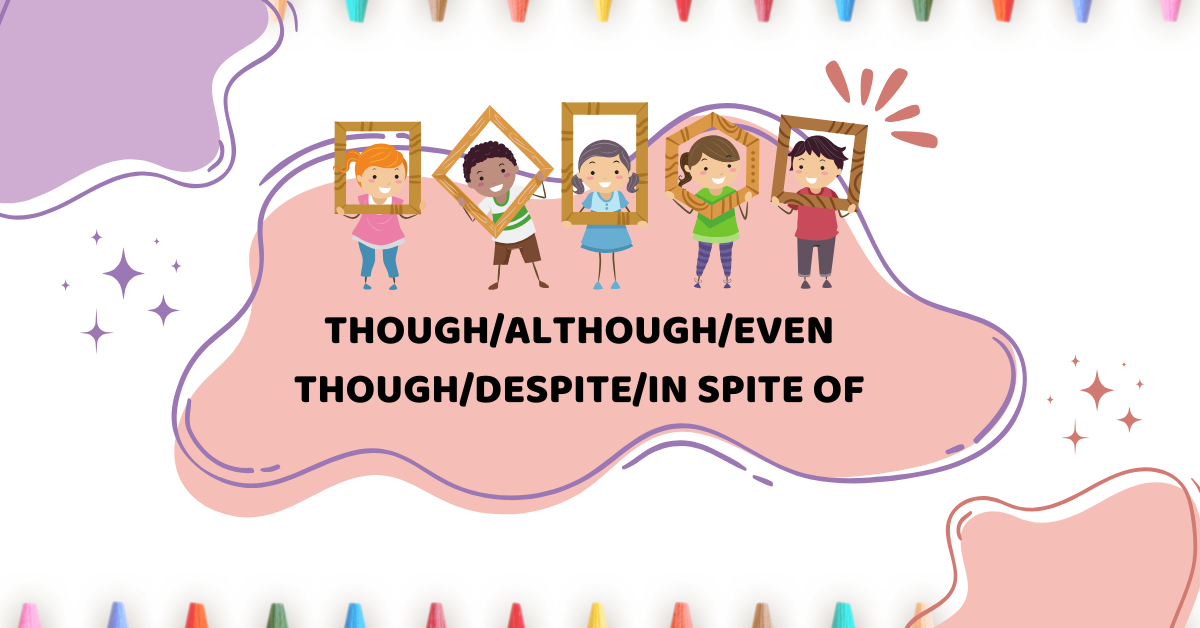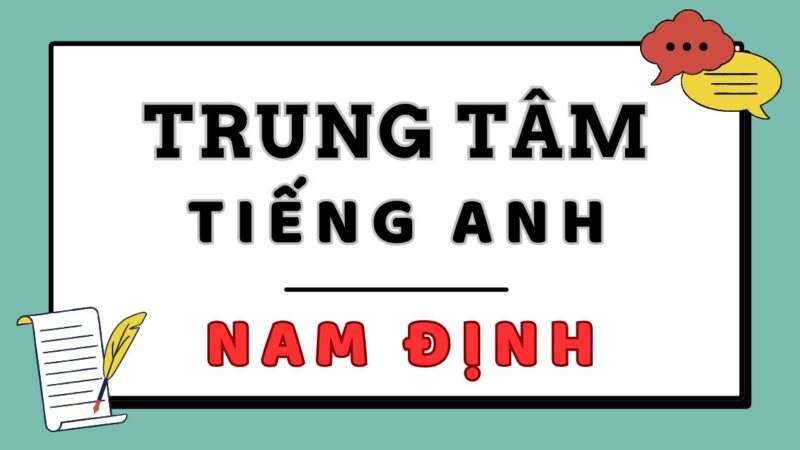Phân biệt Though/Although/Even Though/Despite/In Spite Of trong tiếng Anh

In English, the use of phrases like Although/Although/Even Though/Despite/In Spite Of often causes confusion for many learners. However, each phrase has its own unique usage and is suitable for different contexts. The article below will help you clearly distinguish these phrases, while mastering the structure and how to convert sentences effectively.
- Tổng hợp các dấu trong tiếng việt lớp 1 chi tiết và bí quyết giúp con học hiệu quả
- Tổng hợp 50+ câu đố vui toán học lớp 3 phát triển tư duy não bộ trẻ vượt bậc
- Trại hè quốc tế: Trải nghiệm “du học sớm” giúp trẻ học hỏi và trải nghiệm đa văn hóa
- Tiếng Anh lớp 1 Unit 7: In the garden | Kết nối tri thức
- Could you please là gì? Khi nào dùng could you please trong tiếng Anh?
Distinguishing Although/Although/Even Though/Despite/In Spite Of in English
When learning English, using connecting words correctly is very important to create coherent, logical sentences. Among the linking words, Although/Although/Even Though/Despite/In Spite Of all express similar meanings, but their usage is different.
Bạn đang xem: Phân biệt Though/Although/Even Though/Despite/In Spite Of trong tiếng Anh
Similarities between Although, Although, Even Though, Despite, In Spite Of
All of the above phrases express a common idea: even if condition A occurs, condition B continues to occur. For example, when you say “Even though it rains, I still go out” can be expressed in many different ways using these phrases. This shows that they both carry an opposing positive meaning, emphasizing the steadfastness or defiance of a certain action.
This similarity lies not only in semantics but also in the fact that they both serve the purpose of connecting parts of a sentence, helping to convey the message clearly and accurately. Correct use of these connecting words will help English learners express ideas more coherently and contribute to enriching their language.
The difference between Although, Although, Even Though, Despite, In Spite Of
Although they have something in common, these phrases also have many important differences.
|
Phrase
|
Function
|
Position in sentence
|
Accompanying structure
|
|
Though
|
Connect two clauses
|
Can be at the beginning, middle or end
|
Followed by a clause or noun phrase
|
|
Although
|
Connect two clauses
|
Usually stands at the beginning or middle
|
This is followed by a clause
|
|
Even Though
|
Join two clauses with more emphasis
|
Usually stands at the beginning or middle
|
This is followed by a clause
|
|
Despite
|
Connect the noun phrase to the main clause
|
Usually comes at the beginning of a sentence
|
Followed by a noun phrase
|
|
In Spite Of
|
Connect the noun phrase to the main clause
|
Usually comes at the beginning of a sentence
|
Followed by a noun phrase
|
Further explanation:
-
“Though”, “although”, and “even though” are often used to express contrasts between two ideas.
-
“Despite” and “in spite of” indicate that even though something happens, an action still takes place.
General structure of Although, Although and Even though
To use these phrases correctly, mastering their structure is extremely necessary. Below are the general structures you need to know.
Structure 1
Although/Though/Even though + clause 1, clause 2
The first structure is one of the most common ways to use these words. You can start with “although”, “though” or “even though” followed by two clauses.
For example: Although it was raining, I decided to go for a walk.
This sentence can be understood as “Even though it was raining, I decided to go for a walk”, this usage helps you easily express the contrast between two situations. By using this structure, you can also highlight the character’s resistance in the sentence. This creates depth to the story or situation you want to depict.
Structure 2
Clause 1, + Although/Even though + clause 2
The second structure allows you to reverse the order of the parts of the sentence. You can start with the main clause and end with “though” or “even though”.
For example: I went for a walk, even though it was raining.
Here, the emphasis remains the same, but the sentence style becomes more flexible. Such expressions create a more natural feeling in everyday communication.
General structure of Despite and In spite of
Like the previous phrases, “despite” and “in spite of” also have their own structure that you need to understand.
Structure 1
Despite/In spite of + (phrase) noun/v-ing, clause.
This structure allows you to start with “despite” or “in spite of” followed by a noun phrase or gerund, then the main clause.
For example: Despite the rain, I decided to go for a walk.
This sentence conveys the meaning that even though there is rain, the decision is still made. Using “despite” or “in spite of” will make the sentence more formal.
Structure 2
Clause + despite/in spite of + noun/v-ing (phrase).
The second structure allows you to start with the main clause, then use “despite” or “in spite of”.
For example: I decided to go for a walk despite the rain.
This usage is often used in more formal writing or in essays, making sentences more concise and powerful.

Instructions for converting sentences using Although to sentences using despite
Below is a detailed and specific guide on how to convert sentences using the word “though” to using the word “despite”.
Case 1 – The subject of the two clauses is the same
When the subject of both clauses is the same, making the conversion becomes extremely easy. Simply replace the word “though” with “despite” or “in spite of”, and then add the phrase “the fact that”.
For example: Although she was tired, she finished her homework. -> Despite the fact that she was tired, she finished her homework.
Case 2 – The clause has the form (phrase) noun + be + adjective
In this situation, we remove the complement and put the adjective before the noun.
For example: Although he is smart, he failed the exam. -> Despite the fact that he is smart, he failed the exam.
Case 3 – The clause has the form of personal pronoun/noun (phrase) + be + adjective
When the subject is a personal pronoun, we will convert that pronoun into the corresponding possessive adjective. On the contrary, if the subject is a noun or a noun phrase, we will apply the possessive form by adding ‘s after the noun. Then, remember that we will remove the verb to be and convert the adjective into a noun.
For example: Although they were happy, they didn’t smile. -> Despite the fact that they are happy, they didn’t smile.
Case 4 – Clause has the form of personal pronoun/(phrase) noun + verb + adverb
At this point, if the subject of the sentence is a personal pronoun, we need to convert that personal pronoun into its corresponding possessive adjective. In cases where the subject is a noun or noun phrase, we will use the possessive expression with an ‘s. Next, we will change the verbs in the sentence into nouns and turn the adverbs into adjectives, then place those newly converted words in front of the noun.
For example: Although she runs quickly, she lost the race. -> Despite the fact that she runs quickly, she lost the race.
Case 5 – The clause has the form there + be + noun (phrase).
In this case, we will eliminate the phrase “there + be”.
For example: Although there are many challenges, I will succeed. -> Despite the fact that there are many challenges, I will succeed.
Case 6 – Clauses of the form it + be + adjective describe the weather
In this case, we will remove the -be suffix, convert the adjectives to nouns, and then add the word ‘the’ in front of the converted nouns.
For example: Although it is cold, we will go outside. -> Despite the fact that it is cold, we will go outside.

Case 7 – Clause has the form (phrase) noun + be + V3/Ved (passive)
Xem thêm : Bé chơi bóng rổ: Lợi ích và độ tuổi phù hợp để bắt đầu!
At this point, we will convert V3/Ved into a noun by adding ‘the’ in front and ‘of’ in the back. The original noun phrase that acts as the subject will be moved to the position after ‘of’.
For example: Although the project was difficult, we completed it on time. -> Despite the fact that the project was difficult, we completed it on time.
Case 8 – Replace ‘although’, ‘though’ or ‘even though’ with ‘despite’ or ‘in spite of’, then add ‘the fact that’ and keep the following sentence intact
This is a general conversion technique that can be applied to many different situations. You just need to follow the rules outlined, and you will easily make the conversion steps effectively.
For example: Although/Though/Even though I don’t have many friends, I never feel lonely. -> Despite/In spite of the fact that I don’t have many friends, I never feel lonely.
Exercises to apply Although Although Even Though Despite In Spite Of (with answers)
To consolidate your knowledge, below are some small exercises to help you practice using these phrases. You can do it yourself and check your answers later!
Exercise 1: Rewrite the sentence using the words in brackets so that the meaning stays the same:
-
She went out, but it was raining heavily. (Although)→ Although it was raining heavily, she went out.
-
He didn’t pass the exam although he studied hard. (Despite)→ Despite studying hard, he didn’t pass the exam.
-
In spite of his illness, he went to school. (Although)→ Although he was ill, he went to school.
-
Although the weather was bad, they decided to go hiking. (In spite of)→ In spite of the bad weather, they decided to go hiking.
-
She wasn’t tired, though she worked all day. (Despite)→ Despite working all day, she wasn’t tired.
-
In spite of his age, he runs fast. (Although)→ Although he is old, he runs fast.
-
They were late even though they left early. (Despite)→ Despite leaving early, they were late.
-
Despite the fact that he has a good job, he doesn’t earn much. (Although)→ Although he has a good job, he doesn’t earn much.
-
The match was canceled despite the sun shining brightly. (Although)→ Although the sun was shining brightly, the match was canceled.
-
Although she tried her best, she didn’t win the race. (In spite of)→ In spite of trying her best, she didn’t win the race.
See more: When to use Enough and Too? Detailed instructions & application exercises
Exercise 2: Choose the appropriate word: Although/Although/Even Although/Despite/In Spite Of to fill in the blanks.
-
_______ the heavy rain, they went out for a walk. (Despite)
-
_______ she is very busy, she always helps others. (although)
-
_______ being tired, he continued working on the project. (In Spite Of)
-
The team won the match _______ having fewer players. (Despite)
-
_______ it was very cold, they didn’t wear jackets. (although)
-
_______ her efforts, she couldn’t finish the assignment on time. (Despite)
-
_______ the warnings, many people ignored the evacuation notice. (Despite)
-
She managed to complete the marathon _______ having an injured leg. (Despite)
-
_______ they prepared carefully, they failed the test. (Though)
-
_______ the fact that he was unqualified, he got the job. (Despite)

In summary, the above article has provided details on how to distinguish Although/Although/Even Though/Despite/In Spite Of. Hopefully the above knowledge and examples will help you better understand the usage of each word. To master this knowledge, regularly practice and apply it in practice. Wishing you good studies!
Nguồn: https://truongnguyentatthanh.edu.vn
Danh mục: Giáo dục





